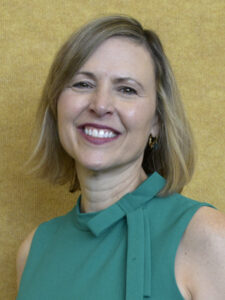
In her address to Scientific Sessions attendees Saturday morning, ADA President, Health Care & Education Gretchen Youssef, MS, RDN, CDE, urged the audience to become active advocates for improving patient access to both high-quality diabetes care and self-management education and support (DSMES).
“For the person with diabetes, access is the foundation of optimal health, outcomes, quality of life, and affordable medical costs,” Ms. Youssef said. “For the health-care system and society, improved access will help to control the rising health impacts and cost burdens of diabetes.”
With an estimated one-third of U.S. adults having prediabetes, Ms. Youssef said there’s an ever-increasing need for access to diabetes prevention services, something that continues to be a major focus of the ADA’s Government Affairs and Advocacy efforts.
“The Diabetes Prevention Program (DPP) and its follow-up outcomes study (DPPOS) clearly demonstrated that intensive lifestyle intervention reduced the incidence of type 2 diabetes,” Ms. Youssef said. “To that end, the National Diabetes Prevention Program (NDPP) was launched in 2010 and, in 2018, CMS (the Centers for Medicare & Medicaid Services) expanded coverage of the NDPP.”
While early results of the NDPP are promising, Ms. Youssef said they also highlight the challenges of translating results of a randomized controlled trial into the real-world setting.
“We need to learn from successful participants and programs which best practices supported their success and, conversely, learn from those who did not meet the program goals what could be done differently to enable success, particularly in high-risk communities,” she said. “In addition, there needs to be increased reimbursement for the NDPP.”
Availability and access to diabetes patient education programs is a significant barrier to overcome, Ms. Youssef acknowledged, noting that DSMES programs are understaffed, underutilized, and unavailable to many, particularly in rural and underserved communities.
“A recent survey showed that only 48 percent of U.S. counties have at least one DSMES site,” she said. “Additionally, there are currently only about 20,000 certified diabetes educators in the U.S. and approximately 32 million people with diabetes. That equals just one educator for every 1,600 persons with diabetes. This highlights the need for us to look at how and where we deliver education.”
Medication costs represent another huge barrier to access that Ms. Youssef said the ADA is working to address.
“This year it has been hard to read the paper or turn on the news without hearing about the staggering costs of insulin and the impact it’s having on lives of persons with diabetes,” she said. “Shockingly, the average price of insulin has more than tripled from 2002 to 2019. Persons with diabetes are not only challenged with living with the omnipresent daily demands of diabetes, but many often face the reality of not being able to afford medications needed to live well and manage their disease.”
Ms. Youssef encouraged the audience to become advocates for access to care, education, and medication by signing up at diabetes.org/advocatesignup.
“The health-care environment is rapidly changing, and all diabetes stakeholders must remain agile and flexible to ensure our success as a community for change on behalf of the person with diabetes,” she said. “Diabetes care providers, including educators, must be willing to move beyond traditional roles and traditional care models and become change agents in the effort to break down barriers to access to diabetes care.”